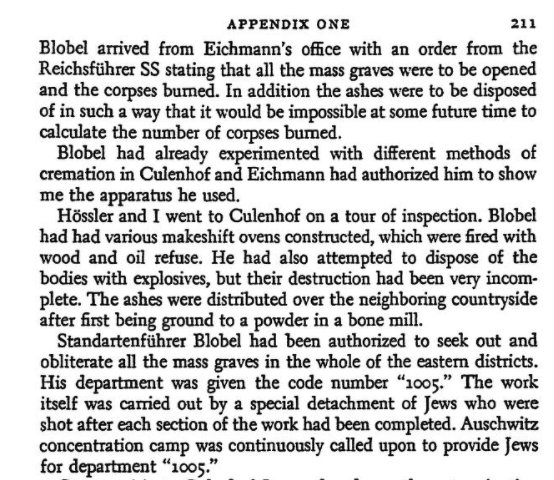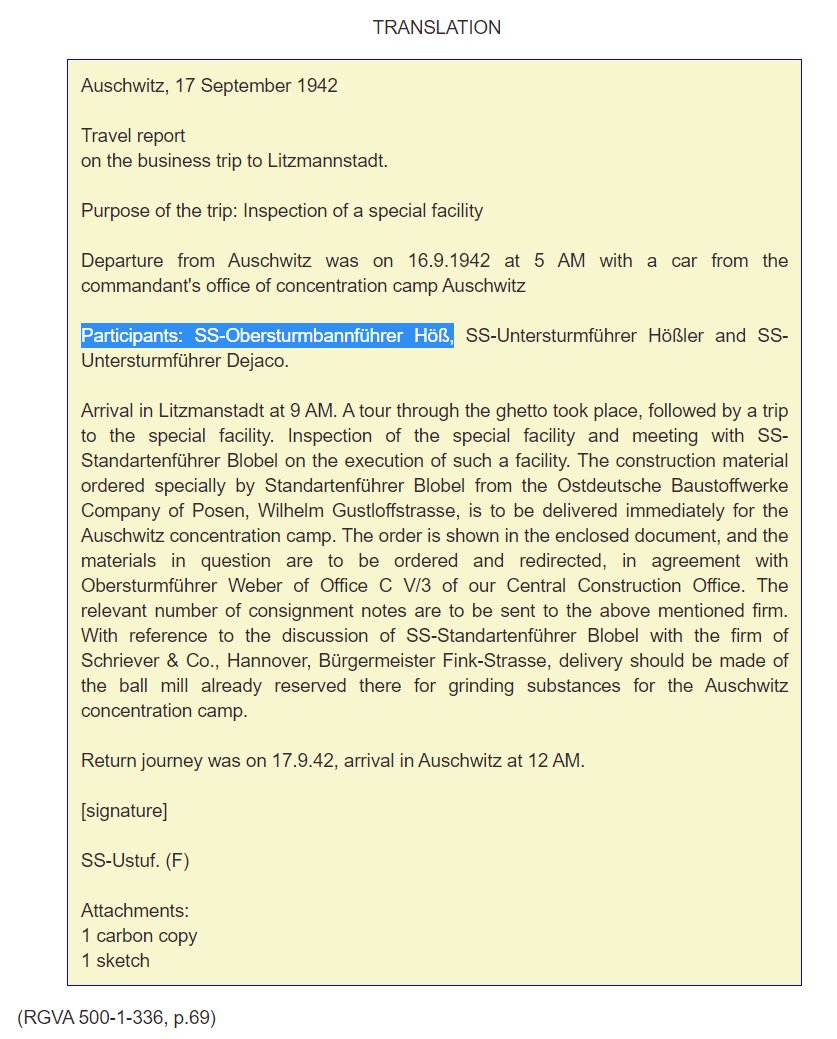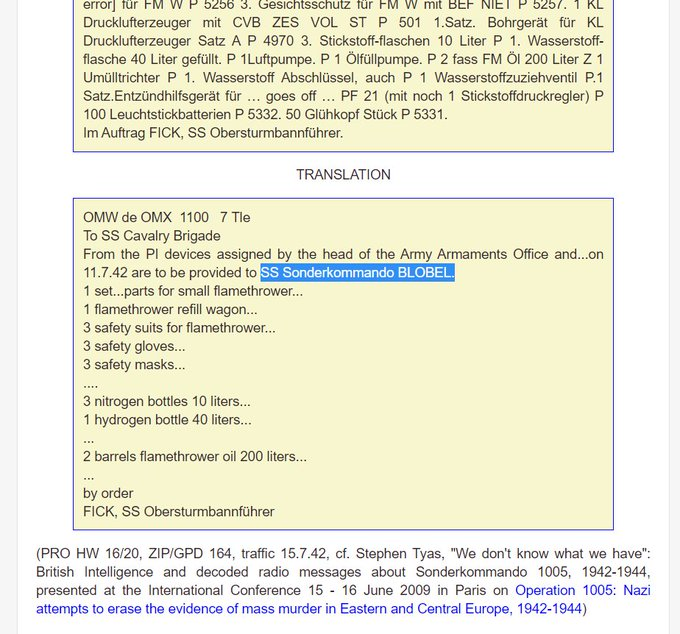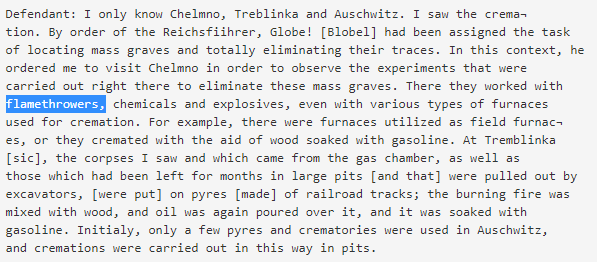curioussoul wrote: ↑Tue Dec 03, 2024 10:52 am
Nessie wrote: ↑Tue Dec 03, 2024 9:23 am
fireofice wrote: ↑Tue Dec 03, 2024 9:01 am
Wow, people who have a preconceived dogmatic belief that the holocaust happened look at the evidence, dismiss anything that isn't good for their side as insignificant or deny its validity, and conclude that the holocaust happened. Truly a revelation.

What evidence is dismissed?
Revisionists dismiss the majority of evidence relating to mass gassings, leaving them with no witnesses, very few documents, little physical or archaeological evidence. They then believe in mass transports to the east and resettlement, for which they can produce no witnesses, documents, physical or circumstantial evidence. They cannot name the department or any senior Nazis responsible for resettlement. It is revisionism that dismisses evidence, on an industrial scale, to conclude something that is not evidenced happened.
Revisionists are the only ones to actively engage all types of evidence.
What types of evidence do historians, journalists and other investigators, who have gathered evidence as to what took place, not "engaged" with?
Exterminationists systematically ignore or dismiss evidence favorable to revisionists.
Second request to say what evidence is dismissed. Please be specific.
They also don't engage in serious historical inquiry.
Please expand on that accusation. What is not "serious" about the way the Holocaust has been investigated as a historical event? How does it differ from other historical investiagtions.
There's also a massive difference between evidence of something not happening as opposed to evidence of something happening.
By claiming that, you reveal your lack of investigative experience and training. A trained investigator will ask a witness "what happened?" an open question that allows the response of "nothing". Or, if they receive a report of something happening from one witness, they can ask another witness if that is what they saw, allowing the response of "no, it was not". An archaeologist, in response to a claim about something being buried, will conduct a site survey, that can result in nothing being found, so nothing was buried. A journalist can search through archives and if they find no documents about a reported event, that is evidence indicative the reported event did not happen. The way investigations were conducted, meant that a negative result was as possible as a positive one and the Polish reports of mass killing turned out to be false.
What's clear is that the 'evidence' for something happening, from the point of view of historiography and the historical method, is insufficient.
The evidence for mass murder, is significantly more than the evidence for mass resettlement. For example, every single witness who worked at the AR camps, Chelmno or an A-B Krema report it was used for gassings. No witness has been traced who was there and reports it was used for another purpose. Archaeological surveys of the AR camps and Chelmno all report large areas of disturbed ground where witnesses reported mass graves. There is no such evidence that the ground is in fact undisturbed, having never been dug into.
It is a revisionist delusion that there is insufficient evidence for mass killings, graves and cremations, created by their belief that they can dismiss the evidence for those events.
We've often pointed out that the Holocaust isn't evidenced the way normal historical events are and that historians don't treat the Holocaust the way other historical events are treated, sometimes for legal reasons, but often for convenience.
Making the denying a historical event took place illegal, is not unique to the Holocaust. Many countries, in particular dictatorships, will suppress those who produce histories that they do not approve of.
Please give an example of how historians treat the evidencing of the Holocaust differently to other events.
Why bother evidencing something that's been accepted as a fact of common knowledge before any evidence was ever assessed?
That is not what happened. The first reports of mass murder by the Nazis were treated with scepticism and they did not alter Allied wartime planning and policy, politically or tactically. By 1945, the Poles had gathered sufficient evidence to prove the existence of specific death camps, the use of the Kremas for mass gassings and there had been mass shootings. The western Allies, meanwhile, concluded that the majority of reports of camps they liberated, did not operate gas chambers and there had been no mass killings. The Nazis either admitted to the mass murders, or denied knowledge of them. None denied that mass murders had taken place and that mass resettlement had. All of that happened against the backdrop of in 1944, the Soviets were finding largely abandoned camps and empty ghettos and in 1945, the western Allies only liberated a few hundred thousand Jews and every occupied country reported the majority of deported Jews had failed to return home. No evidence at all, from any source, was found to support the revisionist claim that millions of Jews had been resettled in the east.
It is another revisionist delusion that in 1945, there was insufficient evidence to prove the Holocaust and that it was considered proven, on little to no evidence.



